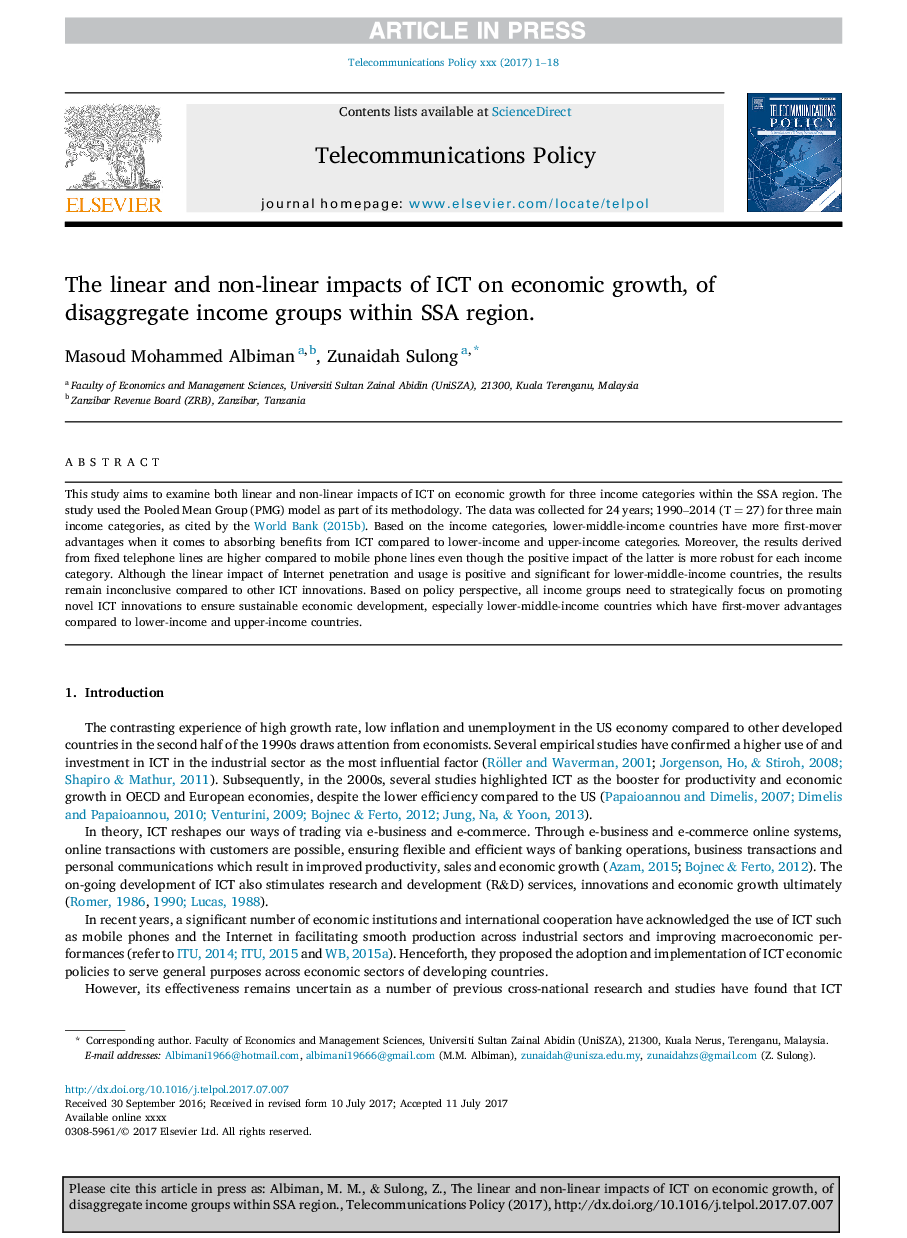| Article ID | Journal | Published Year | Pages | File Type |
|---|---|---|---|---|
| 4973255 | Telecommunications Policy | 2017 | 18 Pages |
Abstract
This study aims to examine both linear and non-linear impacts of ICT on economic growth for three income categories within the SSA region. The study used the Pooled Mean Group (PMG) model as part of its methodology. The data was collected for 24 years; 1990-2014 (TÂ =Â 27) for three main income categories, as cited by the World Bank (2015b). Based on the income categories, lower-middle-income countries have more first-mover advantages when it comes to absorbing benefits from ICT compared to lower-income and upper-income categories. Moreover, the results derived from fixed telephone lines are higher compared to mobile phone lines even though the positive impact of the latter is more robust for each income category. Although the linear impact of Internet penetration and usage is positive and significant for lower-middle-income countries, the results remain inconclusive compared to other ICT innovations. Based on policy perspective, all income groups need to strategically focus on promoting novel ICT innovations to ensure sustainable economic development, especially lower-middle-income countries which have first-mover advantages compared to lower-income and upper-income countries.
Related Topics
Physical Sciences and Engineering
Computer Science
Information Systems
Authors
Masoud Mohammed Albiman, Zunaidah Sulong,
